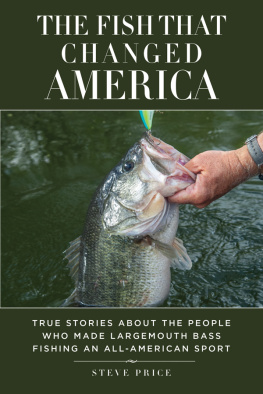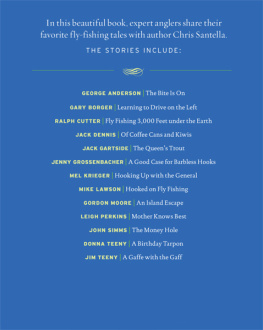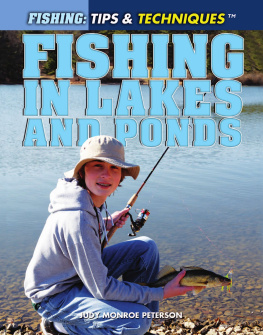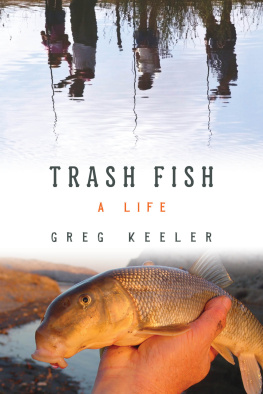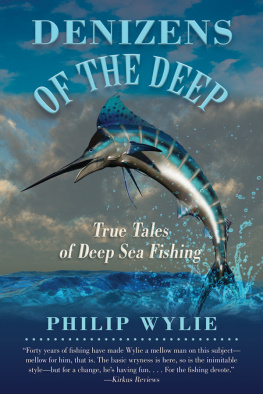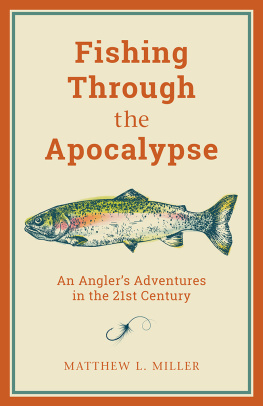I. T HE S TAGE
T HIS FIRST PART IS TRUE; WELL, AS TRUE AS ANY FISHING STORY ever is.
For a couple years in the mid-1950s my family lived in Corpus Christi, Texas, well down the Texas coast. We were fresh transplants from Pennsylvania, from where my dad, a Lutheran minister, and my mother, a sometime substitute teacher and full-time housekeeper/child-raiser/loving mom, had uprooted us when Dad felt the call to go into what was then called domestic mission work, that is, moving to some corner of the country that the higher-ups in the Lutheran Church saw as ripe for the establishment of a new congregation. It was arduous work and a dramatic change from his distinguished pastorate of a prosperous, well-established parish in Hershey. In seeming contradiction to the challenges and difficulty of the work, the assignment came with a disgracefully large cut in salary. But it was where his faith and his heart led him, so we went.
For my brother, sister, and me, Texas was a radically new and nearly exotic environment, a faraway place in the best sense of the song: in our mid-1950s Corpus Christi suburb there was a house a few doors down with an actual producing banana tree in the backyard; everybody talked funny; everybody thought we talked funny; we were Yankees at a time when most southerners were still pretty sure the Civil War wasnt over yet; there were horned toads in the field across the street; summer was very hot; and there was no discernible winter. Perhaps most revealing of what an unknown country Texas was to Pennsylvanians at the time, when my second grade teacher back in Hershey organized my little classmates to send me letters, one of them asked me if I rode a horse to school.
The fishing was also a big change from Pennsylvania. My dad, though not an especially enthusiastic angler himself, was a genuinely great dadthe founding hero of my life. But my big brother Steve, then an adolescent of twelve or so and already my other hero, was a passionate fisherman, so Dad took Steve and me fishing regularly. I was about seven, and I think now that I probably got to go along because I would have whined insufferably if theyd left me behind. I may have lacked Steves informed enthusiasm for fishing, but I managed to have some fun in my own way.
I can now see that I had no idea what a wonderful, broadening experience life in Texas was for three kids from the North. Ever since then, as Ive lived in various states and as I studied and wrote about our countrys history and natural history, that brief period along the south Texas coast has come productively to mind countless times. This is especially true of the fishing, which I now remember with considerable wonder, though at the time it was just fishinmost definitely without the final g.
These little outings typically began with a brief stop at a local fish market where Dad would buy a frozen squarish half-brick-size block of near-jumbo shrimp chunks, our bait for the day. This I recall with something approaching horrorthat we would squander what today would be a high-value culinary target by chucking it piece by piece into the Gulf of Mexico in hopes of catching fish that wouldnt taste anywhere near as good as the bait.
We fished along the Gulf Coast shore somewhere not far from town, out toward the Naval Air Station that was, at that time, home of the famous Blue Angels. I suppose that one of Dads parishioners or perhaps some neighborhood informant had put him on to this fishing spot. The shore consisted of rock and sand and some straggling vegetation that I dont remember any better than that, and the land was restrained by a low wall (wood? concrete? I couldnt say) so the water was a couple feet or so down from where we stood to cast.
And there were lots of crabs. I was both fascinated and a little creeped out by them as they scuttled around with their fine disregard for any sense of going in the direction they were facing.
We all had the standard working-class rods and reels of the day. I suppose that because we were just fishin rather than fishing we probably called our rods poles, but as I write about them now, I cant seem to break the habit of calling rods rods. Dads and mine were solid fiberglass and Steves was, as best he can remember, one of those steel ones that were popular at the time. Steve also reminds me that Dads rod was white, and mine, which Steve (bless his heart) saved all these years and just recently mailed to me, was a sort of sickly green.
The sturdiness of this gear was demonstrated to me when the rod arrived at my door. At some point on its trip in a mailing tube from Michigan to Montana the rod managed to poke through Steves careful packaging, exposing a couple inches of the tip to the vicissitudes and violence of shipping, but the tip was just fine. I suppose that the fates, which surely would have made short work of any modern name-brand rod in such a situation, either found it was too tough to break or figured that it was too cheap to bother with.
Dad had an Akron Pflueger bait-casting reel, and Steve and I had lesser-quality (read cheap, but what could be afforded) reels. At the time I saw these reels as godawfully vicious things, which I guess they were for a kid like me, because of more or less constant backlashes. I did not come to appreciate the better class of such reels as the beautiful little machines they were and are until many years later. In a separate package Steve also sent me Dads reel, so I can authoritatively state that our lines were multicolored Dacron ones, probably about 30-pound test; at every stage in our gear we were evidently going for strength rather than subtlety. We even had a landing net, long-handled enough to reach down to the water from where we stood and retrieve whatever it was wed hooked.
Almost any fish we caught was exciting. Casting from shore like that our harvest was not huge, but it might include some version of saltwater catfish, small black drumfish, saltwater sea trout, eels, and something that looked like whiting. I suppose there were other species, but the very few surviving photos of Steve and me holding up a stringer of fish are blurry and hard to interpret. I dont remember ever catching anything that was more than a foot long unless it was an eel, which I refused to handle, but we happily filled the stringer with the more select species and brought them home. My mother, a rural Ohio girl highly skilled in the breading and frying of northern bluegills, perch, and catfish, expertly prepared them for us. This was fishin!
As I say, I was seven, which meant that beneath my cheerful, Sunday-School-perfect-attendance, bowtie-wearing veneer, I was just another soulless little barbarian. It is true that I lacked some of the finer instincts for cruelty of some of my new seven-year-old pals, who would have instantly grasped the opportunities for sadistic anatomical experiments on those crabs, but my blithe obliviousness to good sense did show itself in other ways, most involving whatever fish was unlucky enough to take my bait.
Being a bright and inventive boy (i.e., inherently dangerous), and having immediately but not quite accurately figured out that the whole point of this enterprise was the bringing-in of fish, I took a value-added approach to any fish I caught that might best be called catch-and-catch-again. Having successfully hooked and summarily dragged in some poor benighted little thing, I saw no reason to stop there, so Id haul back and wing the still-hooked fish as far out as I could and reel it in again. And again. And maybe again. I was perceptive enough to notice that the excitement level dropped off rapidly with each successive retrieve, and I do have a faint almost-memory that my brother or my dad eventually noticed this bit of childhood savagery, but I really couldnt say how they reacted. Probably not positively.


